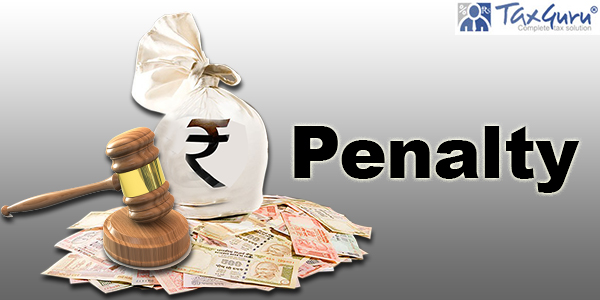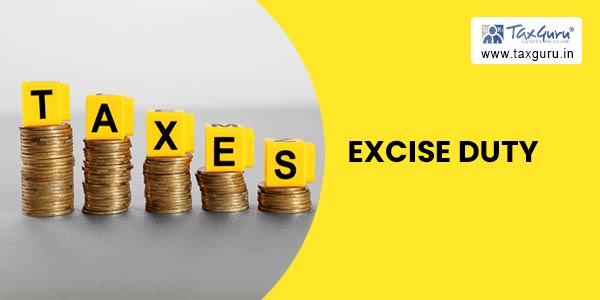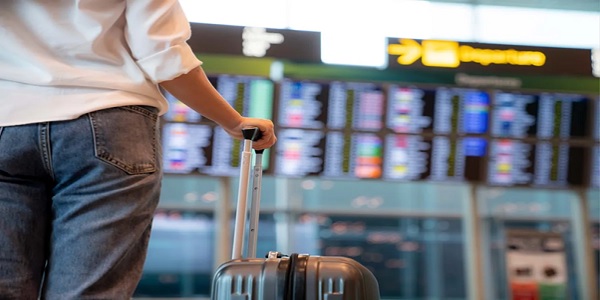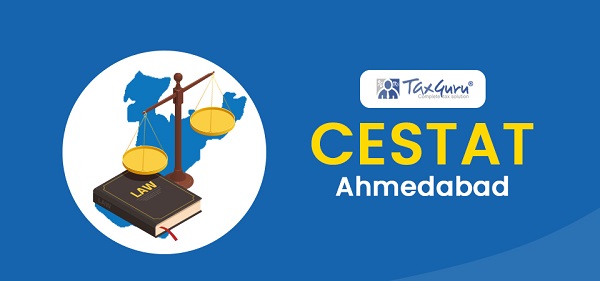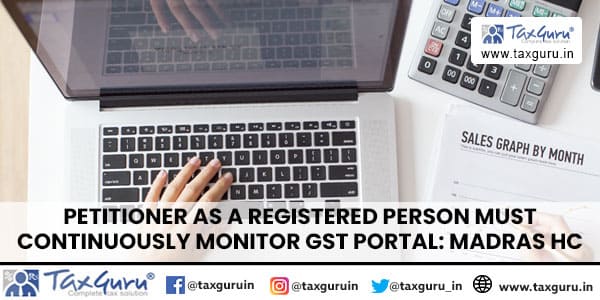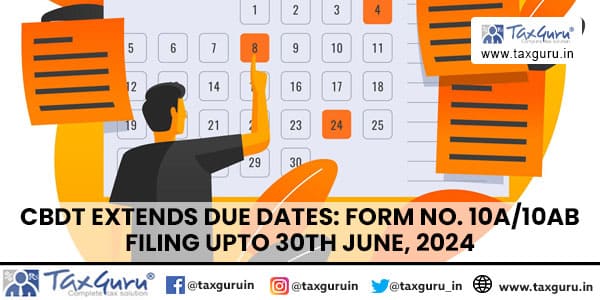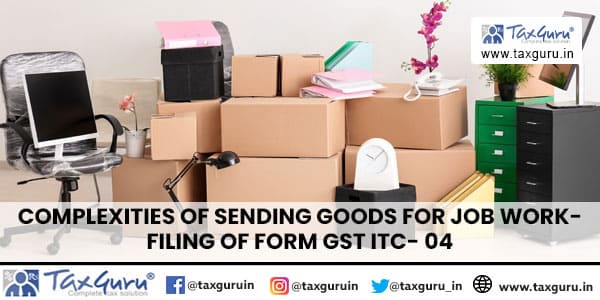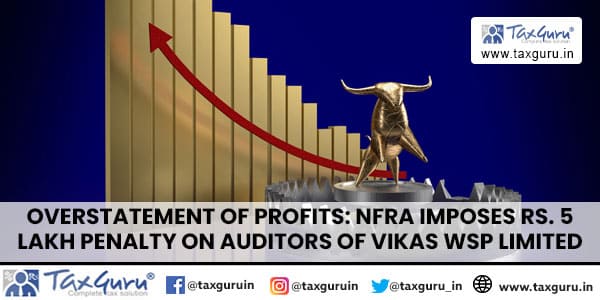Case Law Details
M/s Vodafone Essar Digilink Ltd. Vs. CCE (CESTAT Chandigarh)
The appellant is in appeal against the impugned order wherein the cenvat credit on towers, shelters & prefabricated building etc. of Rs. 5,88,13,400/- has been denied. Consequently, the duty was demanded along with interest and equivalent amount of penalty has been imposed. Aggrieved from the said order, the appellant is before us.
2. The ld. Counsel for the appellant submits that the appellant is engaged in providing Telecommunication Services and availed cenvat credit of the duty paid on towers, tower materials, shelters & pre- fabricated building etc. during the period December, 2004 to February, 2009. The Revenue is of the view that the appellant has taken cenvat credit wrongly, as the said items are not covered within the definition of capital goods or inputs. Therefore, the show cause notice was issued on 23.04.2009 to deny cenvat credit. The Ld. Advocate fairly agreed that as per the decision of the Larger Bench of the Tribunal in the case of BSNL and others vide Interim Order No. 41/2016 date 03.03.2016 as held that cenvat credit on the items in question is not available, therefore, the Ld. Counsel fairly admitted that on merits they are not having the case before this Tribunal but he prayed that as duty has been confirmed by invoking extended period of limitation, therefore, the demand pertains to the extended period of limitation is to be set aside and no penalty is imposable on the appellant. To support this contention, he relied on the decision of Mattel Toys (India) Pvt. Ltd. reported in 1992 (58) ELT 218 (Tribunal)., Lanco Industries Ltd. 2011-TIOL-110-CESTAT-Banglore and Accurate Chemicals Ltd. reported in 2014 (310) ELT 441 (Allahabad). He also submits that the present demand is also time barred. To support this contention, he also relied on the decision of BSNL and others vide Interim Order No. 142- 154/2015 dated 28.07.2015.
3. He further submits that the issue involved in the matter is of interpretation and the same has been initially decided by this Tribunal in the case of Bharti Airtel (Supra) and after the said decision, there was also confusion, therefore, the demand for the extended period of limitation is not sustainable. Consequently, the penalty on the appellant is not imposable. On merits, he also submits that the appellant being a service provider, tower, shelters and tower materials all being parts of the BTS would qualify as capital goods. Therefore, the appellant is entitled for the cenvat credit also.
4. On the other hand the ld. AR opposed the contention of the Ld. Counsel and submits that on merits, the Larger bench of this Tribunal has decided the issue against the appellant and the Honorable High Court of Bombay in the case of Bharti Airtel Ltd. reported in 2014 (35) STR 865 (Bom) who hold that the issue has already been decided against the appellant, therefore, the appellant is not entitled to avail cenvat credit. He further submits that in the case in hand, investigation was started in the year, 2006 and the appellant did not provide the required details in time and when all the details have been supplied by the appellants, the show cause notice was issued to the appellant immediately. Therefore, the extended period of limitation is rightly invoked, as the appellant has suppressed the details of availment of cenvat credit from the department.
5. Heard the parties and considered the submissions.
6. After hearing both the sides, we find that the following issues emerge for the arguments advanced by both the sides.
(A) Whether the appellant is entitled to avail cenvat credit of duty paid on towers material, shelters & pre- fabricated buildings etc. or not?
(B) Whether in the facts and circumstances of the case, the extended period of limitation is invocable or not?
(C) Whether the penalty is imposable on the appellant or not?
Issue No. 1:
As the Larger Bench of this Tribunal in the case of BSNL and others (supra) has held that cenvat credit is not available on the above said items, as they have become immovable property and has affixed to the earth. Therefore, relying on the decision of the Larger Bench of this Tribunal which has been followed by this Tribunal in the case of Vodafone Essar Mobile Services Ltd. reported in 2016- TIOL – 2648-CESTAT, Delhi and Vodafone Essar South Ltd. reported in 2017-TIOL-2254-CESTAT, Allahabad. We hold that the appellant is not entitled to avail the cenvat credit on the items in question.
Issue No. 2 & 3:
We find that the issue of availability of cenvat credit on the above said items was in dispute and the matter has been referred to the Larger bench of this Tribunal in the case of BSNL and others Vide Order dated 28.07.2015, wherein this Tribunal observed as under:
7. The issue before us is to decide is that whether the appellants are entitled to take Cenvat Credit on towers, pre fabricated shelters and accessories thereof being provider of output services or not?
7.1 The Revenue is relying on the decision of Bharti Airtel Ltd. (Supra) of Honorable High Court of Bombay to deny Cenvat Credit. In the said decision the Honorable High Court of Bombay itself has clarified that we are not deciding any wider question but restricting our conclusion to the facts and circumstances which was filed for our consideration in these appeals.
7.2. Therefore, as view expressed by the Honorable High Court of Bombay, we are required to deal with contention of the appellants and thereafter to decide whether the facts of the cases in hand are identical to the case of Bharti Airtel Ltd. (Supra) of the Honorable High Court of Bombay.
7.3. The Ld. Counsel has taken up defence that although the towers during the course of providing output services of telecommunication affixed to the earth becomes immovable property does not bar the appellant to avail Cenvat Credit on these towers. The appellant took support of decision of Honorable High court of Andhra Pradesh in the case of Indus Towers Ltd. (Supra) wherein the issue pertains to the Central Sales Tax Act, 1956 and the allegation of the BSNL was that as telecommunication tower is immovable property and it does not stand to be reason that a part of it where beneficiary party fixed its antenna would becomes goods. Even if other equipments are located near tower are held to be goods wherein Honorable High Court held as under:
The issue in the present batch of cases, in the factual context of the Registration certificate issued and the nature of the petitioners business, is whether goods purchased by the petitioner / dealers (for the purposes of building, operating and maintaining passive telecom infrastructure and where on the towers erected and maintained but nonetheless continued to be owned by the petitioner the passive infrastructure provider; goods which are indisputably integrally associated with the building and maintenance of the cell towers), are goods falling within the ambit of Section 8(1) read with the provisions of Section 8(3)(b) of the CST Act, and thus exigible only at the concessional rate of tax provided in Section 8(1).
21. Further the Honorable High Court observed as under:
The BSNL ruling that telecommunication tower is immovable property may not be of direct relevance to the issue on hand in the present lists as the impugned orders of penalty are not predicted on a premise by the Revenue that the income received by the passive infrastructure providers is exigible to tax under the 2005 Act. The case of the Revenue is that there was a misuse of C forms and that the incorporation and use for provision of the passive telecommunication infrastructure (of goods procured through interstate transactions) are not comprehended within the expression telecommunications networks in Section 8(3) of the CST Act.
22. And finally held as under:
In the facts and circumstances of this lis, in view of the rations deducible from the judgments of the Supreme Court in Rajasthan Electricity Board and in J.K. Cotton Spg. & Wvg. Mills Co. Ltd. we are of the considered view that the purchase of goods by the petitioners from outside the State, comprising goods specified in the certificates of Registration under the CST Act granted to them, against issue of C forms and where the goods have been employed in erection and maintenance of cell phone towers which are integral to Telecommunication Network, fall within the ambit of Section 8(1) read with Section 8(3)(b) of the CST Act and are entitled to be taxed accordingly. The fact that the goods purchased by the petitioners were neither sold nor used in the manufacture of goods for re-sale does not constitute violation of the C forms. Consequently, levy of penalty, on the factual parameters apparent on the record of these cases, is unsustainable.
7.4. The said decision was referred before the Honorable High Court of Bombay in the case of Bharti Airtel Ltd. (Supra) but Honorable High Court has only given the finding that the said decision is in context of Central Sales Tax Act 1956 and cannot be made applicable to the case in hand as it pertains to Cenvat Credit Rules.
7.5 We find that in the case of Jawahar Mills Ltd. (Supra) the Honorable Apex Court rejected this plea that the reliance placed be the litigant on sales tax and income tax decisions in interpreting the words plant and machinery used in manufacturing of goods are of no relevance for interpreting the definition of capital goods under Central Excise Rules 1944. Therefore, we respectfully observed that the Honorable High Court of Bombay was required to consider the decision of Indus Towers Ltd. (Supra) in the light of the decision of Jawahar Mills Ltd. (supra). Therefore, we are of the opinion that the decision of the Honorable High Court of Andhra Pradesh in the case of Indus Towers Ltd. (Supra) is having a bearing in the case of Bharti Airtel Ltd. (Supra).
7.6 We further observed that an issue for availment of Cenvat Credit came up before the Honorable High Court of Gujarat in the case of Mundra Ports & Special Economic Zones Ltd. (supra).
7.7. The issue before the Honorable High Court is given as under:
Whether on the facts and in the circumstances of the case, the Tribunal was justified in law in rejecting the claim of the assessee in light of the provisions of Rule 2(k) of the Cenvat Credit Rules, 2004?
7.8. In the said case Honorable High Court has observed in para 7, 8 and 9 as under:
7. It is not disputed that jetty was constructed and input credit was claimed on cement and steel. The aforesaid definition of Rule 2(k) was applicable and Explanation 2 did not provide that cement and steel would not be eligible for input credit. According to learned counsel for the appellant, the appellant is not manufacturer and, therefore, the provisions Explanation 2 of Rule 2(k) would be applicable only to the factory and manufacturer. The appellant is neither having any factory nor he is manufacturer. The appellant is a service provider of port. We need not go into this question as to whether the appellant is a factory or manufacturer or service provider in view of that fact that it is not disputed by Mr. Y.N. Ravani, learned counsel appearing for the Revenue in this Tax Appeal that the appellant providers service on port for which he is getting jetty constructed through the contractor and the appellant has claimed input credit on cement and steel. The cement and steel were not included in Explanation 2 from 2004 upto March, 2006. The Cenvat Credit Rules, 2004 were amended in exercise of the powers conferred by Section 37 of the Central Excise Act, 1944 with effect from 7.7.2009, the date on which it was notified by the Central Government from the date of the notification. According to learned counsel for the appellant, this amended definition would apply only to the factory or manufacturer and would not apply to the service provider. According to him, either before the amendment made in the year 2009 or thereafter, the appellant was neither factory nor manufacturer and he has only constructed jetty by use of cement and steel for which he was entitled for input credit as jetty was constructed by the contractor, but the jetty is situated within the port area and the appellant is a service provider. According to the appellant, his case is squarely covered by the judgment of the Division bench of the Andhra Pradesh High Court in Commissioner of Central Excise, Visakhapatnam-II Vs. Sai Sahmita Storages (P) Limited, 2011 (270) ELT 33 (A.P) = 2011-TIOL-863-HC-AP-CX Rule 2(K) would demonstrate that all the goods used in relation to manufacturer of final product or for nay other purpose used by a provider of taxable service for providing an output service are eligible for Cenvat Credit. it is not in dispute that the appellant is a taxable service provider on port under the category of port services. Therefore, the appellant was entitled for input credit and the decision of the Division Bench of the Andhra Pradesh High Court squarely applied to the facts of the case and answered the question on which the appeal has been admitted.
8. Mr. Y.N. Ravani, Learned counsel for the Revenue has placed reliance on the decision of the Larger Bench of the Tribunal in Vandana Global Limited Vs. Commissioner of Central Exise, Raiput, 2010 (253) ELT 440 = 2010-TIOL-624-CESTAT-DEL-LB. we have carefully gone through the decision of the Larger Bench of the Tribunal. We do not find that amendment made in Cenvat Credit Rules, 204 which come into force on 07.07.2009 was clarificatory amendment as there is nothing to suggest in the amending Act that amendment made in Explanation 2 was clarificatory in nature. Wherever the legislature wants to clarify the provision, it clearly mentions intention in the notification itself and seeks to clarify existing provision. Even, if the new provision is added then it will be new amendment and cannot be treated to be clarification of particular thing or goods and/ or input and as such, the amendment could operate only prospectively. In our opinion, the view taken by the Tribunal is based on conjectures and surmises as the Larger Bench of the Tribunal used the expression that intention behind amendment was to clarify. The coverage under the input from where this intention has been gathered by the Tribunal has not been mentioned in the judgement. There is no material to support that there was any legislative intent to clarify any existing provision. For the same reason, as mentioned above, the decision of the Apex Court in Sangam Spinners Limited Vs. Union of India and others, reported in 2011 (11) SCC 408 = 2011-TIOL-31-SC-CX would not be applicable to the facts of the instant case.
9. Mr. Ravani has also vehemently urged that since jetty was constructed by the appellant through the contractor and construction of jetty is exempted and, therefore, input credit would not be available to the appellant as construction of jetty is exempted service. The argument though attractive cannot be accepted. The jetty is constructed by the appellant by purchasing iron, cement, grid etc. which are used in construction of jetty. The contractor has constructed jetty. There are two methods, one is that the appellant would have given entire contract to the contractor for making jetty by giving material on his end and then make the payment, the other method was that the appellant would have provided material to the contractor and labour contract would have been given. The appellant claims that he has provided cement, steel etc. for which he was entitled for input credit and, therefore, in our opinion, the appellant was entitled for input credit and it cannot be treated that since construction of jetty was exempted, the appellant would not be entitled for input credit. The view taken contrary by the Tribunal deserves to be set aside.
7.9. We, further, find that the decision in the case of Mundra Ports & Special Economic Zones Ltd. (Supra) was not before the Honorable High Court of Bombay for consideration in the case of Bharti Airtel Ltd. (Supra).
7.10. In these circumstances, we expressed our opinion that we are not in full agreement of the decision taken by the Honorable High Court of Bombay in the case of Bharti Airtel Ltd. (Supra) in the light of the decision of the Honorable High Court of Bombay in the case of Mundra Ports & Special Economic Zones Ltd. (Supra).
7.11. We also find that ld. Counsel for the appellant has submitted that post 2006, the appellant are providing passive telecommunication services and paying service tax categorically on Business Auxiliary services or Business Support services. Therefore, they are entitled to take Cenvat Credit in the light of decision of GTL Infrastructure Ltd. (Supra) and Reliance Infratel ltd. (Supra). We have gone through the decisions of GTL Infrastructure Ltd. (Supra) wherein this Tribunal has considered the decision of Bharti Airtel Ltd.-2013 (129) STR 401 (Tri-Mum) of this Tribunal and thereafter this Tribunal analyzed this issue and observed in para 8 & 9 as under:
8. On going through the above said provision of Rule 2(k)(i) ibid we find it deals with manufacturing activity. Admittedly, the appellants are providing output service, therefore, Rule2(K)(ii)ibid is relevant to the facts of the case in hand, wherein it has been said that all goods, except light diesel oil, high speed diesel oil, motor spirit, commonly known as petrol and motor vehicles, used for providing any output service. The adjudicating authority has heavily relied on Explanation-2 to the said Rules as same has been discussed by the Tribunal in the case of Bharati Airtel Ltd. (supra). In fact, the explanation also clarified that inputs includes goods used in manufacture of capital goods which are further used in the factory of the manufacture. But in the case in hand, the appellant is a service provider. Therefore, the said explanations have no relevance to the facts of this case. As per Rule 2(k)(ii) of the Cenvat Credit Rules, 2004 all goods are entitled for cenvat credit which are used for providing any output service. In this case nowhere it is disputed by any of the parties that the tower/BTS cabins were not used by the appellant for providing service namely Business Auxiliary Service. Therefore, the Cenvat Credit cannot be denied. These facts have not been appreciated by the adjudicating authority and the adjudicating authority heavily relied on the definition of inputs as per Rule 2(K)(i) and Explanation-II to the said Rule. We also find that before discharging their service tax liability, the appellant narrated activity undertaken by them to the Revenue and Revenue directed the appellant to pay service tax under the category of Business Auxiliary Service on the said activity. In that case the Cenvat Credit taken on the inputs for providing that service is entitled for Cenvat Credit as per Rule 2(K) (ii) of the Cenvat Credit Rules, 2004. Further, we find that the adjudicating authority has heavily relied upon the decision of Bharti Airtel ltd. (Supra); in the said case the facts are totally different to the facts of the case in hand. In fact, in that case appellant was engaged in providing cellular telephone service and as per Board Circular No. 137/315/2007-CX-4 date 26.02.2008, it is clarified that no cenvat credit on towers and BTS cabin is permissible for cellular phone service provider. In that instant case, the towers and the cabins are used by the appellant as passive Telecom Infrastructure for providing output service namely Business Auxiliary Service as declared by the appellant to the department in 2005 and agreed to by the department in their reply date 20.09.2015.
9. We further find that in this case the intention of the appellant and their client (Operators) is to confer the Operators a right to install active infra network equipment including GSM Antenna and BTS equipment, and to extend and receive, highly specialized technical service, which includes the provision of creation and maintenance of highly controlled artificial temperatures and humidity levels at all times and continuous power supply at the prescribed voltage so as to operate the equipment of the operators, and thus be conducive to the functioning of the operators signal transmission for their ultimate consumers. In these circumstances, we hold that appellant are entitled for input service credit on towers and cabin, which have been used by the appellant for providing output service under the category of Business Auxiliary Service in the facts of the case.
7.12. Again this Tribunal in the case of Reliance Infratel ltd. (Supra) further observed in para 8 as under:
7.13. And, thereafter, this Tribunal allowed Cenvat Credit on structural steel for providing passive telecom infrastructure service.
7.14. In the light of above cited decisions of GTL Infrastructure Ltd. (Supra) and Reliance Infratel ltd. (Supra) we hold that post 2006 appellants are providing passive telephone infrastructural and paying service tax categorically of Business Auxiliary services or Business Support services. Therefore, the appellant are entitled to take Cenvat Credit on towers, portable shelters and accessories thereof as per the definition of Rule 2(k)(2) of Cenvat Credit Rules, 2004 as they are providing output services that is Business Auxiliary Services or Business Support Services and there is no restriction for availing Cenvat Credit on inputs namely tower and parts thereof on which duty has been paid by the supplier.
8. Further, we find that in the case of Bharti Airtel Ltd. in appeal No. ST/777/2009 wherein supplier of the goods have classified these shelters / towers under chapter 85 of the Central Excise Act Tariff 1985 and paid duty thereon as capital goods and same has been accepted by the Revenue. In these circumstances, we hold that in the said appeal, the appellant is entitled to take Cenvat Credit on towers and shelters to the tune of Rs. 2,59,95,327/- as capital goods.
9. We also find that the issue of availment of Cenvat Credit on the items in question is still in dispute as there are conflicting decisions of the Honorable Bombay High Court in the case of Bharti Airtel Ltd. (Supra) and of Honorable High Court of Gujarat in the case of Mundra Ports & Special Economic Zones Ltd. (Supra). Moreover, first time the issue was decided against the appellant by this Tribunal on 06.01.2012 in the case of Bharti Airtel Ltd. (Supra). Therefore, the allegation of suppression of fact is not sustainable. Consequently, the extended period of limitation is not invokable in these matters as in some of the cases, the assessing authorities themselves were allowing Cenvat Credit on these items. Therefore we hold that extended period of limitation is not invokable. Accordingly, the demand pertains to extended period of limitation are set aside.
10. On merits, we find that the facts of the cases in hand are similar to the fats of the cases of Bharti Airtel Ltd. (Supra), although we are not in agreement to the same but and we are bound by the decision of the Honorable High Court and the same is to be followed as judicial discipline. Therefore, on merits, we hold that appellant are not entitled to take Cenvat Credit on towers, portable shelters and accessories thereon in the light of decisions of Bharti Airtel Ltd. (Supra) of the Honorable High Court of Bombay.
11. With regard to penalties, as we observed that the allegation of suppression of facts for availing inadmissible Cenvat Credit with malafide intention is not sustainable in the light of the divergent views of the various judicial pronouncements, the penalties on the appellants are not imposable.
12. In view of the above observation the following order has been passed:
a) On merits, the appellants have no case in the light of the decision of Bharti Airtel Ltd (Supra) of Honorable High Court of Bombay.
b) Post 2006, wherever the appellant are paying service tax under the category of Business Auxiliary Services or Business Support Services for providing passive infrastructure, the appellants are entitled to take Cenvat Credit on towers, pre fabricated shelters parts thereon, etc.
c) In appeal no. ST/777/2009, the appellant is entitled to take Cenvat Credit to the tune of Rs. 2,59,95,327/- on shelters / parts as capital goods wherein the supplier has paid Excise duty on these items by classifying under Chapter 85 of the Central Excise Tariff Act 1985.
d) The extended period of limitation is not invokable. Therefore, the demands beyond the normal period of limitation are set aside.
e) Penalties imposed on the appellants are set aside.
13. With these terms appeals are disposed of. The Misc applications also stands disposed of in the above terms.
14. I have carefully and appreciating perused the judgment authored by my Ld. Brother. The order portion of the judgment (para-12) is reproduced below:
12. In view of the above observation the following order has been passed:
a) On merits, the appellants have no case in the light of the decision of Bharti Airtel Ltd (Supra) of Honorable High Court of Bombay
b) Post 2006, wherever the appellant are paying service tax under the category of Business Auxiliary Services or Business Support Services for providing passive infrastructure, the appellants are entitled to take Cenvat Credit on towers, pre fabricated shelters parts thereon, etc.
c) In appeal no. ST/777/2009, the appellant is entitled to take Cenvat Credit to the tune of Rs. 2,59,95,327/- on shelters / parts as capital goods wherein the supplier has paid Excise duty on these items by classifying under Chapter 85 of the Central Excise Tariff Act 1985.
d) The extended period of limitation is not invokable. Therefore, the demands beyond the normal period of limitation are set aside.
e) Penalties imposed on the appellants are set aside.
15. The issue involved in these appeal is whether cenvat credit on telecom towers and prefabricated building and parts thereof is admissible.
16. I fully agree with para 12(a) of my Ld. Brothers order that on merits the appellants have no case in the light of decision of Bharti Airtel Ltd. (supra) of High Court Bombay. Indeed in para 10 of his judgment, it is clearly stated that:
10. On merits, we find that the facts of the cases in hand are similar to the facts of the cases of Bharti Airtel ltd. (Supra), although we are not in agreement to the same but and we are bound by the decision of the Honorable High court and the same is to be followed as judicial discipline. Therefore, on merits, we hold that appellant are not entitled to take cenvat credit on towers, portable shelters and accessories thereon in the light of the decisions of Bharti Airtel ltd. (Supra) of the Honorable Court of Bombay.
Thus having held that on merits the appellants are not entitled to take cenvat credit on towers, prefabricated building (PFB) and parts thereof in the light of the decision of Bombay High Court in the case of Bharti Airtel (supra), I am not able to persuade myself to reconcile with the order contained in para 12(b) and 12(c) quoted above because the contents thereof are inconsistent, and in disharmony, with the clear, unconditional and unqualified finding and order recorded in para 10 & 12(a) quoted above that the appellants have no case on merits in the light of Bombay High Court judgement in the case of Bharti Airtel (Supra) which is held to be a binding precedent by my ld. Brother also.
17. Having said what is said para 16 above, I would also like to state that the Bombay High Court in the case of Bharti Airtel ltd. discussed the issue in great detail and gave a clear finding in para 32 that Towers and parts thereof are fastened and are fixed to earth and after their erection become immovable and therefore cannot be goods.This view/finding of the High Cort is not an off the cuff remark or a mere obiter dictum. The said finding is directly germane to the issue and is the distillate of a rational reasoned and detailed analysis of the facts and circumstances and the judicial precedents. The High Courts view/finding that the towers are not goods is independent of their classification. In other words, the said view/ finding is not dependent on or influenced by any classification considerations. Similarly, the said view/ finding is independent of the output service in relation to which they are uses. Thus the said view/ finding is a clear, unambiguous, and reasoned and ratio based view/ finding on the basis of which Cenvat Credit on towers. PFB and parts thereof was denied because when these are not goods then they cannot be capital goods or inputs. The reasoning, analysis and ratio of the Bombay High Court and the consequence thereof (that when the towers are not goods then they cannot be capital goods or inputs) is thus directly applicable even in cases where the towers are shared by other telecom companies to provide telecom services. Merely fact that the owner of such a tower allows some other company to use it for providing telecom service in no way diminishes the validity and strength of the reasoning ratio, view/ finding of Bombay High Court that such towers are not goods. Further, once Mumbai High Court has concluded after a reasoned and rational analysis that towers are immovable property and not goods, they cannot become moveable, property/ goods merely because they are differently classified by some or are shared by some telecom operations (other than their (i.e. towers) owners) to provide telecom service or even some other service. Thus I have no doubt in my mind that the order contained in para12(b) and 12 (c) quoted above is in contradiction of the reasoning, ratio and view/finding of the Bombay High Court Judgment which my ld. Brother has also held to be binding on CESTAT.
18. My Ld. Brother has referred to the Judgment s of CESTAT in the cases of GTC Infrastructure (Supra) and M/s Reliance Infratel ltd. (Supra). While the judgment in the case of GTL Infrastructure ltd. was passed before the judgment of Bombay High Court in the case of Bharti Airtel, I find that in the case of Reliance Infratel, the Judgment of Bharti Airtel has been distinguished essentially on the ground that in that case the output service was telecom service while in the case of Reliance Infratel, the output service is Business Support Service (Support Service for Business or Commerce). I am of the view that this distinction is of no consequence vis-a-vis the analysis, reasoning and ratio following which the Bombay High Court formed the view that towers, being immovable property, cannot be goods. In the Judgment of Reliance Infratel, CESTAT has also made a reference to the following observation of the Bombay High Court in para 33 of the Judgment in the case of Bharti Airtel.
We clearly that we are not directing any under question but restricting our conclusion to the facts and circumstances which have fell for our consideration in these appeals.
What is expressly stated in the said quotation only demonstrates the worth emulating modesty displayed by the ld. Justice because even if not expressly so stated, each and every judgment is delivered in view of, and with regard to, the facts and circumstances of the case. I may further add that the facts and circumstances in the case of Bharti Airtel involved use of telecom towers to provide telecom services and in the case of Reliance Infratel also, these towers were shared by the owners thereof with the other telecom companies which also provided the same service notwithstanding the fact that in that process, the service rendered by the tower owners to the other telecom service providers has been considered to fall under B.S.S. Further it no way diminishes the analysis, reasoning and ratio of the Bombay High Court Judgement in case of Bharti Airtel. Even if the Bharti Airtel Judgment is applied in its most restricted manner in the wake of the above quoted remark of the High Court, it is undeniable that the said judgment, even in its narrowest sense has unequivocally arrived at a reasoned and rational finding that towers are immovable property and not goods and if towers are immovable property and not goods in the context of the case of Bharti Airtel, they cannot by any stretch be held to be movable property/ goods in the context of Reliance Infratel merely because they were also shared by other telecom service providers, it is more so because, as stated earlier, the analysis reasoning and ratio based on which the High Court came to the view/ finding that towers are not goods was independent of their classification and or the output service they were used in relation to.
19. In view of the foregoing, I am of the firm view that the CESTAT judgement in case of Reliance Infratel does violence to the reasoning, ratio and finding of the judgement of Bombay High Court in the case of Bharti Airtel and is not in conformity therewith. Therefore, CESTAT judgement in the case of Reliance Infratel (Supra) has no value as a precedent.
20. In addition to what is stated above, I may also observe that once telecom towers, PFB and parts thereof are held to be ineligible for credit by Bombay High Court in the case of Bharti Airtel (supra) to allow credit on PFB in some other case in similar set of circumstances merely because those were classified by the supplier in a different chapter will also not be in conformity with the said Bombay High Court judgement, more so when immovability thereof has been taken as a ground by Bombay High Court for disallowing the credit on PFB as is also evident from the fact that it cited (in para 29 of the Bharti Airtel Judgement) the judgement in the case of CCE, Mumbai-IV Vs. Hutchison Max Telecom- 2008 (224) ELT 191 (Bom.) (Specially quoting para 7, 8 and 9 thereof)
21. In the light of the foregoing, I hold that in view of the reason/ratio and finding of the Bombay High Court in the case of Bharti Airtel (Supra), Cenvat credit in respect of telecom tower, PFB and parts thereof is not available even in those cases where such credit is allowed by my ld. Brother vide para 12 (b) and (c) of his Judgment. Consequently, I express my respectful disagreement with the order of my ld. Brother as contained in para 12(b) and 12 (c) of his judgment and pass the following order in total agreement with the rest of his order.
(a) On merits, the appellants have no case in the light of the decision of Bharti Airtel Ltd. (Supra) of Honorable High Court of Bombay.
(b) The extended period of limitation is not invokable. Therefore, the demands beyond the normal period of limitation are set aside.
(c) Penalties imposed on the appellants are set aside.
Therefore, the allegation of suppression is not sustainable. Moreover, while reference was made to the Larger Bench by this Tribunal and the entitlement of the cenvat credit on items in question, both the members of the referral Bench had held that the extended period of limitation is not invocable. Further, in the case of Vodafone Essar Mobile Services Ltd (Supra) although, on merits, the cenvat credit was denied but it was held by this Tribunal the extended period of limitation is not invocable. Further in the case of Vodafone Essar South Ltd. (Supra), this Tribunal held that the appellant is not entitled to avail cenvat credit on the items in question but it was held that the extended period of limitation is not invocable and no penalty is imposable.
7. The sole arguments of the Ld. AR is that the appellant had not provided the details in time, therefore, the appellant is not entitled to avail cenvat credit.
8. In fact, availment of cenvat credit was in the knowledge of the department as the appellant was filling their service tax returns in time and availment of cenvat credt was shown. If the appellant has not provided the details, no one has preventive by the Revenue to issue the show cause notice to deny the whole of the cenvat credit to them. The revenue cannot take the excuse that the details were not supplied, therefore, the extended period of limitation is invocable.
9. In fact, on merits, if the issue of availment of cenvat credit was in dispute upto the level of this Tribunal, in that circumstances, the allegation of suppression or concealment of fact/ mis- statement is not sustainable. Therefore, relying on the judicial pronouncement discussed herein above, we hold that in this case, the extended period of limitation is not invocable, therefore, the demand pertaining to the extended period of limitation is set aside. Consequently, the penalty on the appellant is not imposable.
In view of the above, the following order is passed.
(A) Demand along with interest within period of limitation is confirmed.
(B) Demand for the extended period of limitation is set aside
(C) Penalty is imposed on the appellant is also set aside.
With these terms, the appeal is disposed off.
(Order to be pronounced on 30.11.2017)







